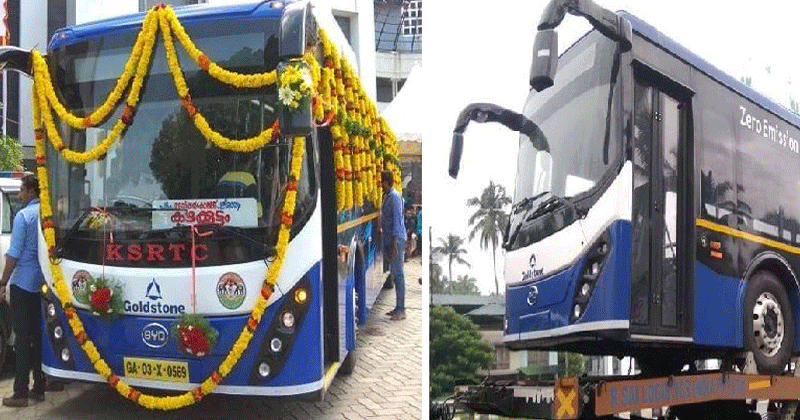
From fuel/ diesel run vehicles, the world is moving towards the next generation mode of transportation- the electric vehicles. And what with considering the hike in the fuel prices and their overall shortage, it seems to be a good idea.
Kerala State Road Transport Corporation (KSRTC) has started a trial run of electric buses. The trial run is being conducted in Thiruvananthapuram, Kochi and Kozhikode in Kerala and its feasibility is being tested over a period of 15 days. These buses are imported, and are made by Chinese maker BYD.
Once these electric buses prove successful, the KSRTC will issue an international tender process to procure the first batch of electric buses. The trials of these battery operated electric buses are on the same lines as that conducted in Telangana, Maharashtra and Goa. The buses are being offered free of cost by Goldstone Infratech Limited, a Hyderabad based manufacturing company, which produces these buses along with BYD Auto, a China based automobile maker.
The K9-D.2 variant of the bus is a low floored, air conditioned bus with seating capacity of 35 persons. The bus has a wheelchair facility and gets air suspension system for better ride comfort along with disc brakes with anti lock braking system. CCTV cameras and GPS system will also be available on these buses.
Powered by wall mounted lithium ion BYD Goldstone FE battery, the battery charges in a matter of 4 hours and offers a travel range upto 350 kms. KSRTC has confirmed that the buses will be charged overnight. One unit of current is required to run the bus over 1 km which would cost INR 6-7 as per current tariff charges.
READ ALSO: India’s first Smart Electric Scooter to hit the roads; prelaunch booking started
Charging stations are being set up at KSRTC workshops based in Aluva while KSRTC also seeks subsidy by the Central Government under the Faster Adoption and Manufacturing of (hybrid) and Electric vehicles (FAME) scheme. Ticket pricing on these buses is at the same rate as charged by the Volvo buses that are run on diesel.
Once these electric buses prove successful, the cash strapped KSRTC hopes to conduct global tenders for the procurement of 300 e-buses which could help them in stemming mounting operational losses from the currently run diesel and CNG buses.
SO HOW HAVE THE BUSES FARED IN GOD’S OWN COUNTRY?
In the Thiruvananthapuram region, the bus raked in a daily average profit of Rs 7000. A similar response was seen in the Kochi region too. The bus raked in an average daily collection of Rs 10, 570 during its four-day operation in Kochi. It recorded a revenue of Rs 8, 879 as of 6.30 pm on Tuesday and Rs 12, 236 on Monday. Today the bus will be on its experimental run in the Kozhikode region.

Post Your Comments